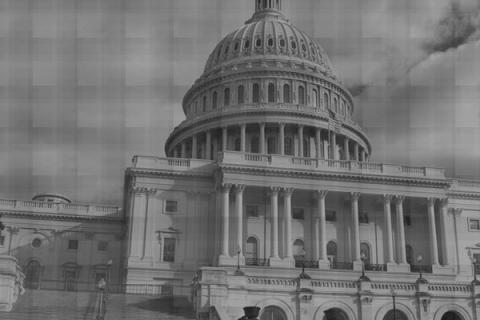
Rep. Corrine Brown is attempting to block a Florida early voting law which reduced the number of days available for early voting in the state from fourteen to eight.
Judge Timothy Corrigan held a hearing on Wednesday addressing the lawsuit, which contends that the current law is discriminatory. Rep. Brown (D-Fla), the Duval County Democratic Party, and the Southern Christian Leadership Conference are behind the suit.
"I don't know exactly what the ruling is going to be, but I'm really, very disappointed that the Republican Party is continuing to try to suppress the African-American vote," Brown told Jacksonville's WJXT.
Early voting allows eligible voters to cast their ballot in person prior to the November 6 election without having to provide an excuse for their inability to participate on Election Day. Each of the 32 states that allow early voting have an allotted time period in which voters can cast their ballots.
According to the Florida Division of Elections, early voting for Floridians "begins 10 days before an election and ends on the 3rd day before any election in which there is a state or federal office race. Early voting may be held for a maximum of 12 hours, but no less than 6 hours, a day."
Proponents of the reduced early voting days suggest that it will help decrease voter fraud and opponents claim that it disenfranchises minority voters.
Florida Secretary of State Ken Detzner (R) is defending the law along with other Republican leaders. According to the Associated Press, lawyers for Detzner say that the law does not harm minorities because early voting is still available. “Florida law affords ample opportunities to vote: eight days of in-person early voting, no-excuse absentee voting and Election Day voting,” the state said in written arguments.
The law, passed by the Republican-controlled Legislature last year, not only reduced the voting period, it also eliminated voting on the Sunday before Election Day.
Minority groups opposed the change, arguing that it would harm the "Take your Souls to the Polls" program, which encourages voting by taking church attendees to an early voting site after Sunday service.
“If you take one million off early voting and send them to general voting, what will happen?" Ion Sancho, Leon County’s nonpartisan elections supervisor, asked The New York Times. "Lines, lines, lines.”
The federal government blocked the Florida early voting law from taking effect in five counties (Collier, Hendry, Osceola, Polk and Lee) stating that those counties have histories of racial discrimination. The court suggested extending the hours of voting during the eight-day period to satisfy the federal requirements. According to the WJXT report, the Obama administration has already signed off on a proposal that calls for 96 hours of early voting in those counties.
Despite opposition claims, the efforts to reduce early voting days is not necessarily a move of disenfranchisement by Republicans. According to the Wall Street Journal, the Romney campaign also benefits significantly from early voters. Republican officials estimate that 60% of the votes in Florida will be cast before Election Day.
"This is a close election, and both parties are competing on all the terrain they can," Paul Gronke of the Early Voting Information Center at Oregon's Reed College remarked. "Both parties are trying to mobilize their segments of the electorate, and to the degree they can get them to cast an early ballot, they can direct resources to voters who have not turned out."
With Election Day less than fifty days away, Judge Corrigan promises a quick turnaround with the verdict.
